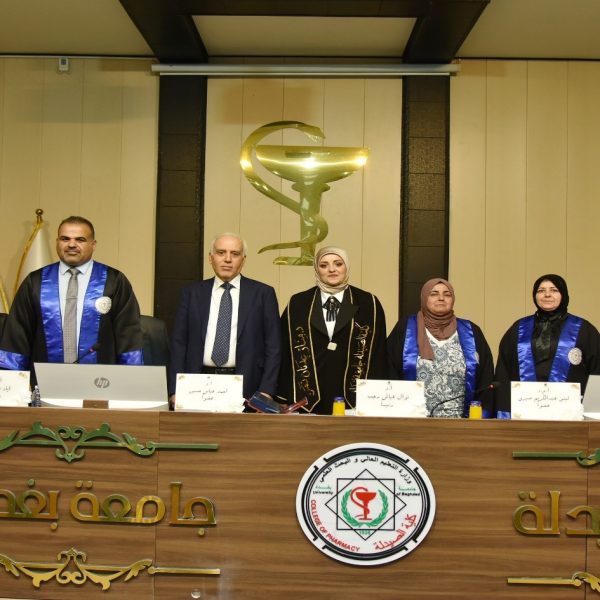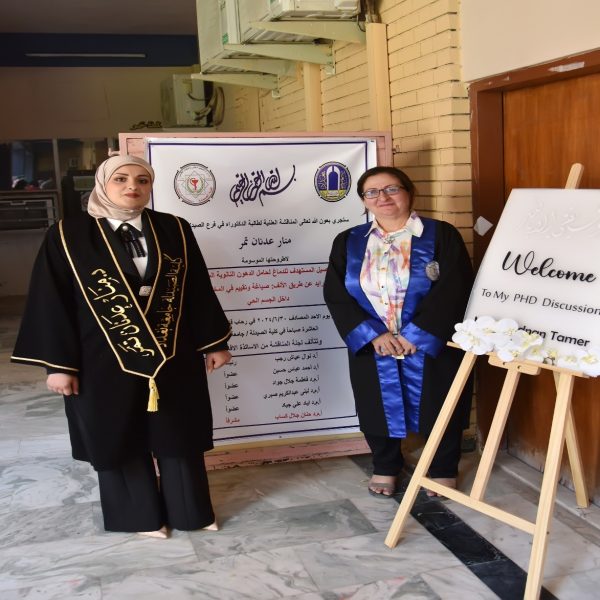The College of Pharmacy discussed the PhD dissertation entitled ” Amisulpride Loaded Nanostructured Lipid Carrier Targeted Nose to Brain: Formulation and In-Vitro/ In-Vivo Study ” by the student Manar Adnan Tamer and her supervisor, Assist. prof. Dr. Hanan Jalal Kassab, at the Pharmaceutics Department. The aim of this study was to prepare and evaluate a brain targeted drug delivery system of amisulpride loaded nanostructured lipid carriers to increase efficacy by facilitating direct brain targeting and provide an alternative route for the intravenous administration of drug. Different formulas of amisulpride nanostructured lipid carriers were formulated. Different ingredients were selected to be used according to the preformulation study including solubility study in various lipids, surfactants and co-surfactants, miscibility between solid and liquid lipids and emulsification with surfactants and co-surfactants. The results showed a significant shift in some evaluations criteria with a non-significant change in other characterizations upon switching between different types and ratios of compositions. Based on pharmacokinetic analysis in rats, intranasal AMS-MNLCs were reported to have a brain Cmax and significantly higher than that of the intravenous AMS-Solution and it gave a greatest value for drug targeting index (DTI), drug targeting efficiency (%DTE), and direct transport percentage (%DTP). In addition, two weeks of intranasal administration of formulation did not show any gross pathology or affect hematological parameters, no change the complete blood picture, and histopathological investigation showed that there was no disruption of the nasal membrane structure. As a conclusion the right combination of the formulation compositions based on studying the effect of each factor on the main NLCs characteristics can serve as the basis for a successful intranasal amisulpride loaded nanostructured lipid carrier. The created and optimized intranasal mucoadhesive NLCs showed a promised venue for the efficient and secure delivery of amisulpride (AMS) as an antiemetic drug for the prevention and treatment of PONV and other future approved indication of amisulpride. The discussion committee recommended to develop a sprayable formulation using specific brain targeting device as well as conducting a long-term stability assessment of the prepared formula.







